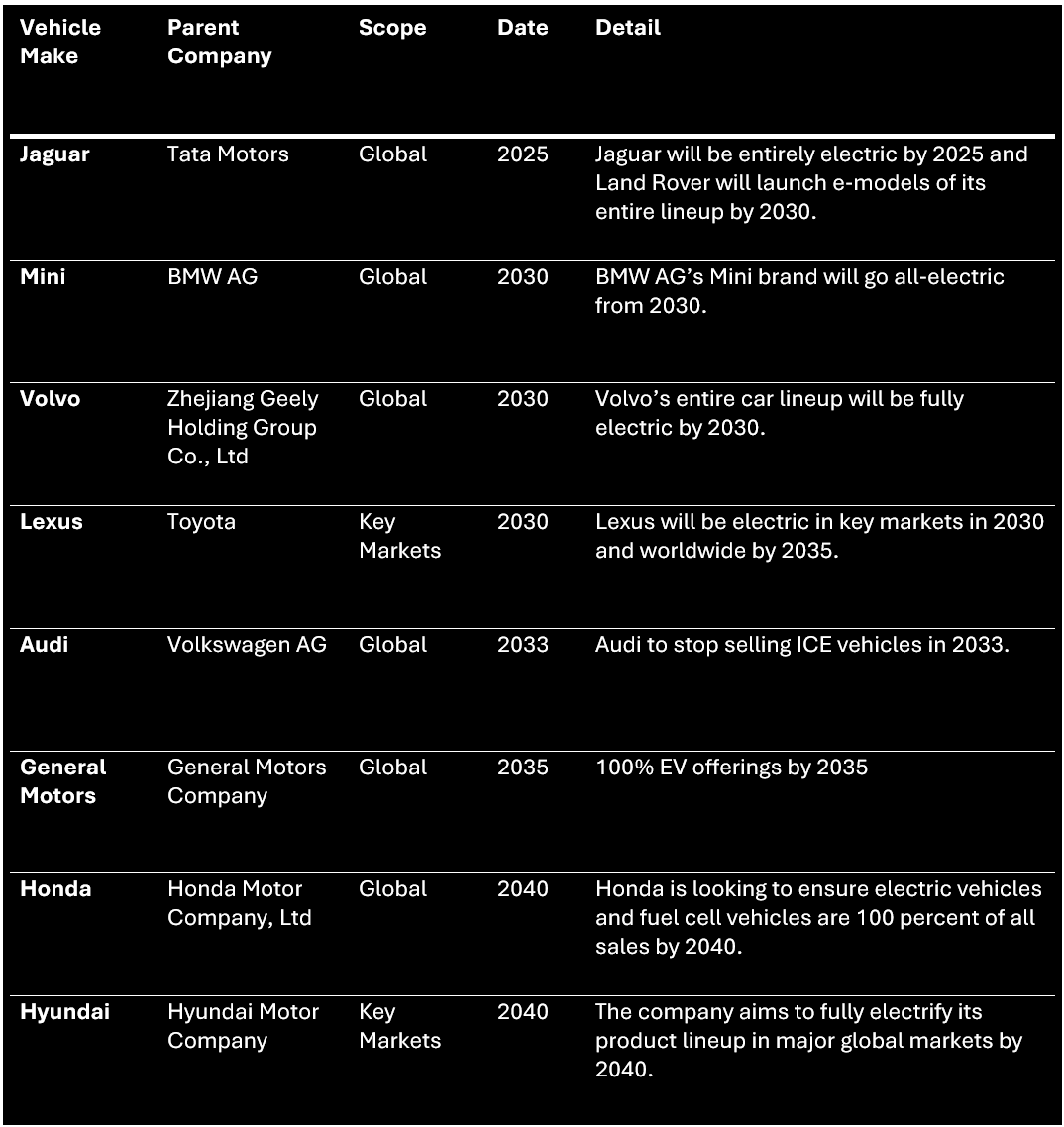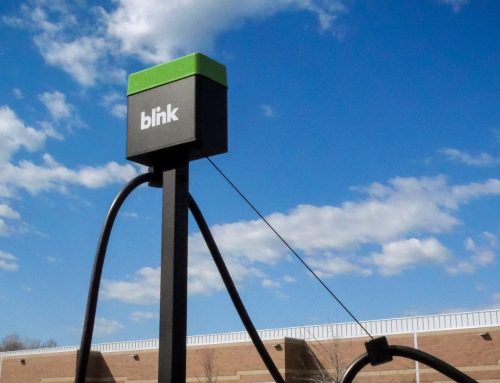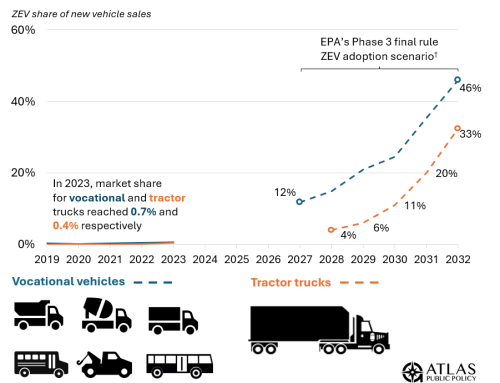
Source: EV Hub
Automakers have made big and bold commitments to zero emissions vehicle sales. It is, however, hard to parse through what the commitments mean and how they compare.
The above table captures all vehicle makes that have announced a date to sell only 100% zero emissions vehicles in the United States. It is important to be clear that these remain targets and so there is nothing binding about these goals. Further, the automakers listed below may have targets for some of their vehicle makes but not for the rest of their offerings.
Mandates for zero emissions vehicle sales have been floated by some governments. The UK for instance has introduced a ban on gasoline vehicles from 2030 and Governor Newsom in California issued an executive order mandating that all vehicles are zero emission in the state by 2035.
What about other automakers?
Nissan: The company has targets that include selling 40 percent EVs in 2030 in the United States, although the company has not announced a date by which it will no longer sell ICE vehicles.
Daimler: Mercedes announced that it would go electric in markets “where market conditions allow”. This caveat means that it has not technically set a goal for the United States. For the COP26 declaration on accelerating the transition to 100% zero emission cars and vans, the company committed to “work towards reaching 100% zero emission new car and van sales in leading markets by 2035 or earlier.”
Ford: Ford does not have a fully electric target for the US. That said, it has pledged to have “…one-third of overall sales electric by 2026, rising to half by the end of the decade. It was already committed to making all passenger cars in Europe electric by 2030.” For the COP26 declaration on accelerating the transition to 100% zero emission cars and vans, the company committed to “work towards reaching 100% zero emission new car and van sales in leading markets by 2035 or earlier.”
Stellantis: In May 2022, the company pledged to go carbon neutral by 2038 but has set no date for all electric sales.
Mazda: In mid-2021, “Mazda said all vehicles it produced by 2030 would incorporate electrification, ramping up the battery-EV ratio to 25% from a previously announced figure of 5%.”
Kia: The automaker has pledged to sell 40 percent EVs by 2030.
Toyota: Toyota has no target, though it provided some direction in December 2021 about the Lexus make as noted above.
Subaru: In January 2020, the company announced that it would, “sell only electric vehicles worldwide by the first half of the 2030s” but did not set a date and this appears to include plug-in hybrid vehicles.
This summary does not include every automaker or vehicle make in the country; however, it does include the major automakers and all of the thirty highest model makers in 2021 are captured in this summary. As you may expect, all electric vehicle makers (Tesla, Rivian etc.) are not counted here.
You can explore other automaker commitments at Automakers Dashboard – Atlas EV Hub.


